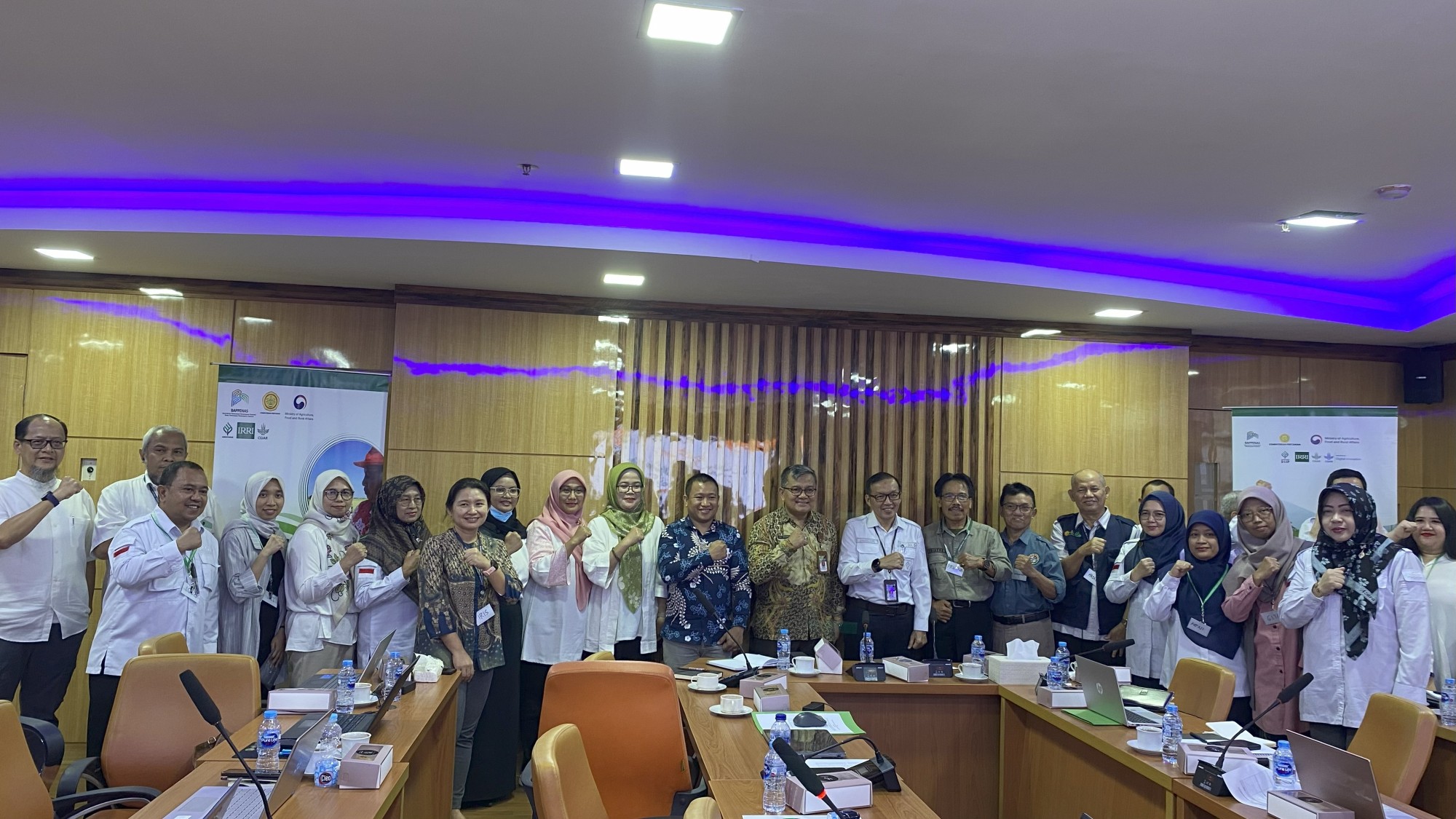Training of Masters Brings LKP 2.0 to Agricultural Trainers, Extension Workers, and Lecturers

JAKARTA, Indonesia (6-8 August 2025) - The International Rice Research Institute (IRRI), in collaboration with the Indonesian Center for Agricultural Extension (Pusat Penyuluhan Pertanian/Pusluhtan) and Indonesian Center for Food Crops Engineering and Modernization (Pusat Perakitan dan Modernisasi Pertanian Tanaman Pangan / BRMP Food Crops) conducted the Training of Masters (ToM) on Layanan Konsultasi Padi (LKP) 2.0. The three-day event, held at the Agricultural Extension Center Office in Jakarta, aims to build the capacity of agricultural trainers, extension workers, and lecturers to promote and disseminate improved digital nutrient management advisory tools for rice farmers across Indonesia.
LKP 2.0 is the updated version of the Rice Crop Manager (RCM) Indonesia, a digital platform providing field-specific nutrient and crop management recommendations based on the Site-Specific Nutrient Management (SSNM) approach. The updated platform integrates feedback and development support from BRMP Food Crops and features a simplified, more user-friendly interface to help farmers optimize fertilizer use, improve yields, and enhance sustainability.
The training commenced with opening remarks from Dr. Tedy Dirhamsyah, S.P., M.A.B, Director of the Indonesian Center for Agricultural Extension, who expressed his appreciation for this collaboration, stating, “The ToM on LKP 2.0 marks a crucial first step. It stands as a concrete example of cross-functional and cross-role collaboration in achieving food security and improving farmers’ livelihoods that we must continue to strengthen in the future. Let us maintain this spirit of collaboration, because only through strong cooperation can our agricultural extension efforts truly make an impact, especially in supporting the achievement of national food self-sufficiency.”
Recognizing that agricultural trainers, extension workers, and lecturers all play a critical role in transferring knowledge and fostering adoption of new technologies, the ToM equipped participants with the technical skills to generate and explain LKP recommendations, conduct farmer interviews, and measure fields using GPS. The program also covered strategies for effectively communicating recommendations to farmers and training other extension personnel.
Seventeen participants attended this ToM, including 12 extension workers from Pusluhtan, three trainers from the Agricultural Extension Training Center (Balai Besar Penyuluhan Pertanian/BBPP), one lecturer from the Agricultural Development Polytechnic (Politeknik Pembangunan Pertanian/Polbangtan), and two lecturers from the Indonesian Agricultural Engineering Polytechnic (Politeknik Enjiniring Pertanian Indonesia/PEPI). These participants are expected to serve as dissemination agents, bringing LKP 2.0 to a wider network of extension staff, agricultural trainers, farmer leaders, and other stakeholders.
Wardah Humaira, an extension worker from the Agricultural Extension Center who took part in the ToM, shared her experience. “This training has been very beneficial, especially in learning about the Rice Crop Manager (LKP) version 2.0. Previously, we often provided fertilizer recommendations based solely on experience. Now, we can give more accurate recommendations tailored to the farmers’ field conditions. The GPS field measurement feature and GPX file upload also make the farm area size more accurate.”
By empowering agricultural trainers, extension leaders, and lecturers with the capacity to promote LKP 2.0, this initiative supports Indonesia’s broader goals of improving rural prosperity, ensuring food security, and promoting environmentally sustainable farming practices. The collaboration between IRRI, Indonesian Center Agricultural Extension, and BRMP Food Crops underscores a shared commitment to equipping rice farmers with the tools and knowledge needed to thrive in an evolving agricultural landscape.